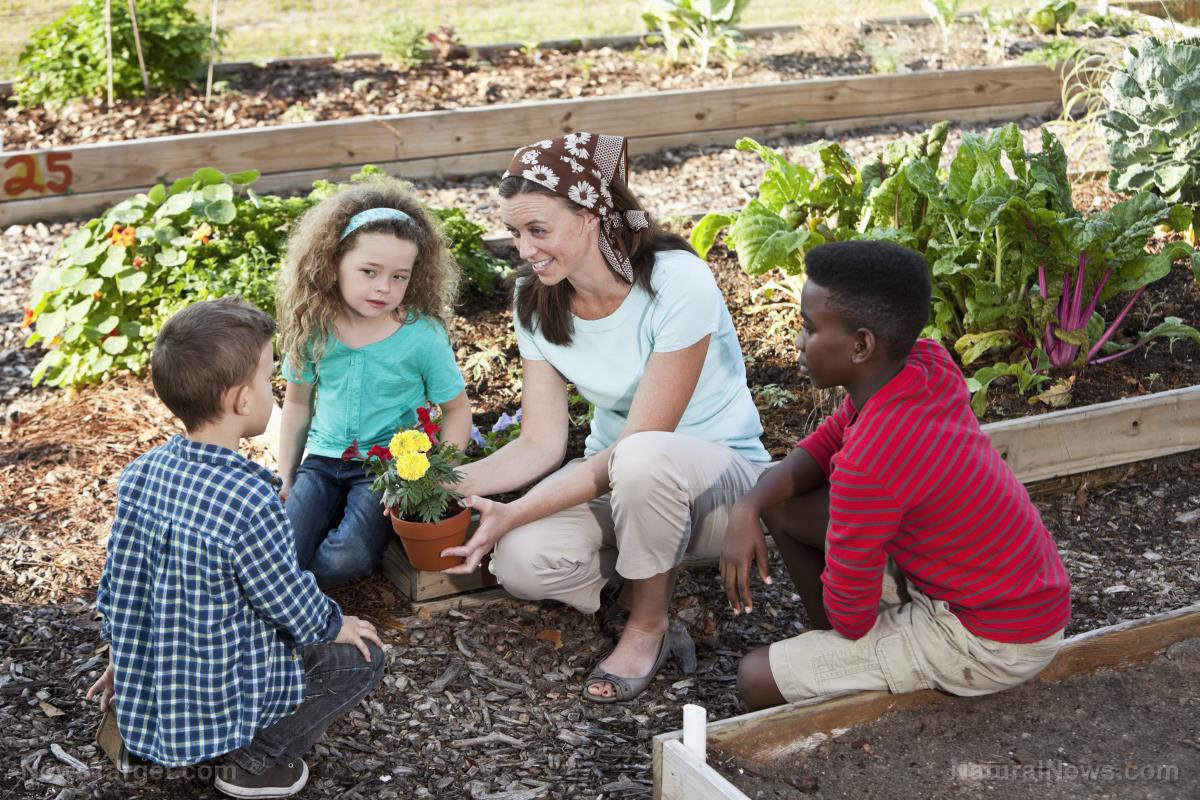Can agrihoods (agricultural neighborhoods) help tie communities together?
09/01/2019 / By Melissa Smith

Living in a neighborhood that has a working farm, plenty of green space, community gardens, edible landscaping, and rows of fruit trees without trading the city life seems like an ideal neighborhood. Agrihoods, short for agricultural neighborhoods, exist for this reason – and they help tie communities together.
The size, geography, and socioeconomic culture of agrihoods differ; they can be found in rural, suburban, and urban spaces, using different locations. But these housing developments all focus on farming, promoting the production and consumption of fresh food at the center of daily activity. They have been established because of the increasing popularity of farmers’ markets, community-supported agriculture (CSA), buying local goods, and sustainability.
The Michigan Urban Farming Initiative (MUFI) developed the first sustainable urban agrihood in the U.S. It has a two-acre farm, fruit tree orchard, and children’s sensory garden.
“Over the last four years, we’ve grown from an urban garden that provides fresh produce for our residents to a diverse, agricultural campus that has helped sustain the neighborhood, attracted new residents and area investment,” Tyson Gersh, president and co-founder of the MUFI, said in a 2016 press release.
Every year, this certain agrihood provides fresh, free produce to about 2,000 households within two square miles. This gives its residents a strong connection to the sourcing and handling of their own food.
Building and maintaining agrihoods can be both challenging and rewarding
Living in an agrihood gives you access to produce grown right in your neighborhood. This increases the freshness and nutritional quality of foods as they don’t need to be transported.

However, building and maintaining agrihoods do not come easy. Agrihoods face one of two challenges: rural areas lack the density needed to support their operations, and urban areas typically lack available space. In addition, the developer helps set up the farm, such as providing the land, greenhouses, and tractor. The farm also needs initial assistance to be self-sustaining – be it as a nonprofit or private operation.
Rural and urban locations can also be isolating in their own ways. For this reason, it is important to have a communal farming space where people can interact, work together, and learn from each other. Residents should be involved in farming or gardening and cooking classes to keep the community together. In addition, there is some evidence suggesting that community gardens can directly contribute to reducing the risk of chronic diseases and depression, especially when residents participate in gardening. (Related: FARMacy: Gardening does wonders for your mood.)
The rising popularity of agrihoods in the U.S.
In the U.S., over 200 agrihoods have been established so far, and more are being developed. Millennials are even choosing agrihoods over golf communities.
Experts believe that agrihoods are appealing to millennials because it represents environmental good, social benefit, and even economic profits. They also say that agrihoods could become the 21st century version of golf communities that baby boomers flocked to in the 1990s. In fact, golf communities became a status symbol 25 years ago as the real estate was expensive, mostly due to the green space and the views.
Agrihoods are designed to appeal to young, active families who love to eat healthily and spend more time outdoors, without being off the grid. By living in an agrihood, they can practice sustainable living without trading the city life. Young people prefer farm-to-table fare and clean living, for which agrihoods are developed.
Sources include:
Submit a correction >>
Tagged Under:
agricultural neighborhoods, agriculture, agrihoods, clean food, communities, farming, fresh produce, gardening, green living, organics, sustainable living, Urban Farming, urban gardening
This article may contain statements that reflect the opinion of the author





















